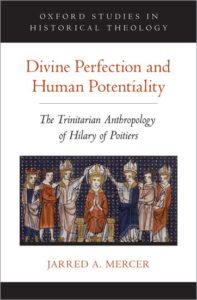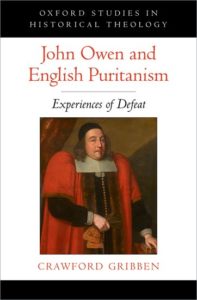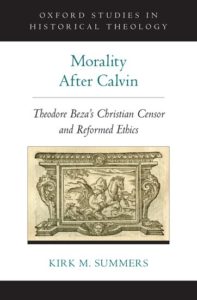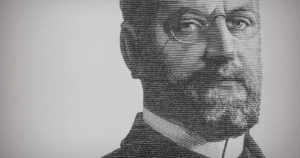
Author’s Corner: Oxford Studies in Historical Theology
Each week on Credo we welcome you to join us in the Author’s Corner where we will meet a set of authors whose recent books deserve your attention and might even help you grow in your knowledge of theology, history, philosophy, and the scriptures. We hope the Author’s Corner can keep you up-to-date on the most important books published today and where you can find them.
On today’s Author’s Corner, we present you with a selection from the Oxford Studies in Historical Theology, edited by Richard A. Muller (Oxford University Press).
Oxford University Press established in 1994 a new series of original monographs devoted to the history of Christian thought from its early and medieval beginnings to its later development in the modern period. The underlying assumption held from the first was that Christian ideas from the past can best be understood when scholars present them in their proper historical and cultural context. For 20 years the distinguished authors in this series have treated a wide variety of intellectual problems from the Christian past and, by so doing, have redefined the discipline of historical theology for the foreseeable future.
D ivine Perfection and Human Potentiality: The Trinitarian Anthropology of Hilary of Poitiers (OUP,2019) by Jarred A. Mercer
ivine Perfection and Human Potentiality: The Trinitarian Anthropology of Hilary of Poitiers (OUP,2019) by Jarred A. Mercer
The place of Hilary of Poitiers in the debates and developments of early Christianity is tenuous in contemporary scholarship. His invaluable historical position is unquestioned, but the coherence and significance of his own thought is less certain. In this book, Jarred A. Mercer makes a case for understanding Hilary not only as an important historical figure, but as a noteworthy and independent thinker.
Divine Perfection and Human Potentiality offers a new paradigm for understanding Hilary’s work De Trinitate. The book contends that in all of Hilary’s polemical and constructive argumentation, which is essentially trinitarian, he is inherently developing an anthropology. The work therefore reinterprets Hilary’s overall theological project in terms of the continual, and for him necessary, anthropological corollary of trinitarian theology- to reframe it in terms of a “trinitarian anthropology.” The coherence of Hilary’s work depends upon this framework, and without it his thought continues to elude his readers. Mercer demonstrates this through following Hilary’s main lines of trinitarian argument, out of which flow his anthropological vision. These trinitarian arguments unfold into a progressive picture of humanity from potentiality to perfection.
J ohn Owen and English Puritanism: Experiences of Defeat (OUP, 2016) by Crawford Gribben
ohn Owen and English Puritanism: Experiences of Defeat (OUP, 2016) by Crawford Gribben
John Owen was a leading theologian in seventeenth-century England. Closely associated with the regicide and revolution, he befriended Oliver Cromwell, was appointed vice-chancellor of the University of Oxford, and became the premier religious statesman of the Interregnum. The restoration of the monarchy pushed Owen into dissent, criminalizing his religious practice and inspiring his writings in defense of high Calvinism and religious toleration. Owen transcended his many experiences of defeat, and his claims to quietism were frequently undermined by rumors of his involvement in anti-government conspiracies.
Crawford Gribben’s biography documents Owen’s importance as a controversial and adaptable theologian deeply involved with his social, political, and religious environments. Fiercely intellectual and extraordinarily learned, Owen wrote millions of words in works of theology and exegesis. Far from personifying the Reformed tradition, however, Owen helped to undermine it, offering an individualist account of Christian faith that downplayed the significance of the church and means of grace. In doing so, Owen’s work contributed to the formation of the new religious movement known as evangelicalism, where his influence can still be seen today.
M orality After Calvin: Theodore Beza’s Christian Censor and Reformed Ethics (OUP, 2016) by Kirk M. Summers
orality After Calvin: Theodore Beza’s Christian Censor and Reformed Ethics (OUP, 2016) by Kirk M. Summers
In Morality After Calvin, Kirk M. Summers examines the development of ethical thought in the Reformed Orthodox tradition immediately following the death of Calvin. Framed around a previously unstudied poetic work of French theologian Theodore Beza, the Cato Censorius Christianus (1591), and read in conjunction with the works and correspondence of Beza and his colleagues, the book reveals the theoretical underpinnings of the disciplinary activity during the period. The poems of the Cato show that the moral fervor of the latter half of the sixteenth century had its genesis in a well-formulated theology that viewed a Christian’s sanctification as a process of restoration to an original order created by God. For Beza the Christian life does not end with grace and salvation, but begins there.
The principles of morality, in this theoretical framework, look back to the very moment of creation, when God structured human relationships, established a certain order in nature, and issued commands. The Mosaic Law and Christ himself embody these principles, which include an ethos of listening, sincerity of life, engagement with one’s calling, love of neighbor, respect for divine order, and a desire for the purity of the flock.
With insight and dexterity, as well as the use of previously unavailable sources, Summers contributes this significant volume to the study of Beza and his place in the history of the Reformed Orthodoxy.

